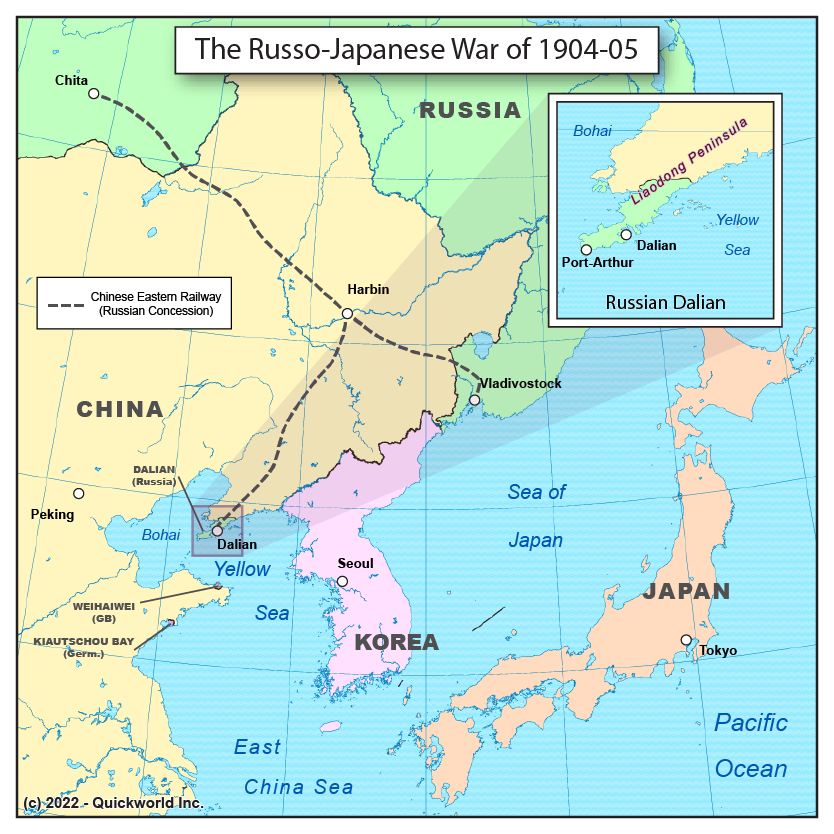The Russo-Japanese War of 1904-1905 is a major event in World history, as it establishes Japan as a major World power and represents the first instance of modern warfare in the Far-East.
Russia had reached the confines of the Sea of Japan with the Amur annexation of 1860, and the rising economic power of Japan put both empires on a collision course. Russia built a railroad from the city of Chita in Siberia to the port of Vladivostok through the Chinese city of Harbin in Manchuria, with the agreement of the Chinese Empire. As part of aggressive European policies for economic control of China, Russia also obtained a base in Port-Arthur near the Chinese city of Dalian, which was then connected to its main rail network.
Japan viewed this Russian involvement as a threat and pre-emptively cut Russian advance in the region by declaring war on Russia and attacking Port-Arthur. After 18 months of intense warfare in which 200,000 men died, Japan came out victorious and this started a period of territorial extension that would last all the way to World War II.
While Russia and Japan have been at peace since 1945, tensions remain between both nations, as Japan considers the Southern Kuril Islands to be Japanese territory under Russian occupation.
The Russo-Japanese War


